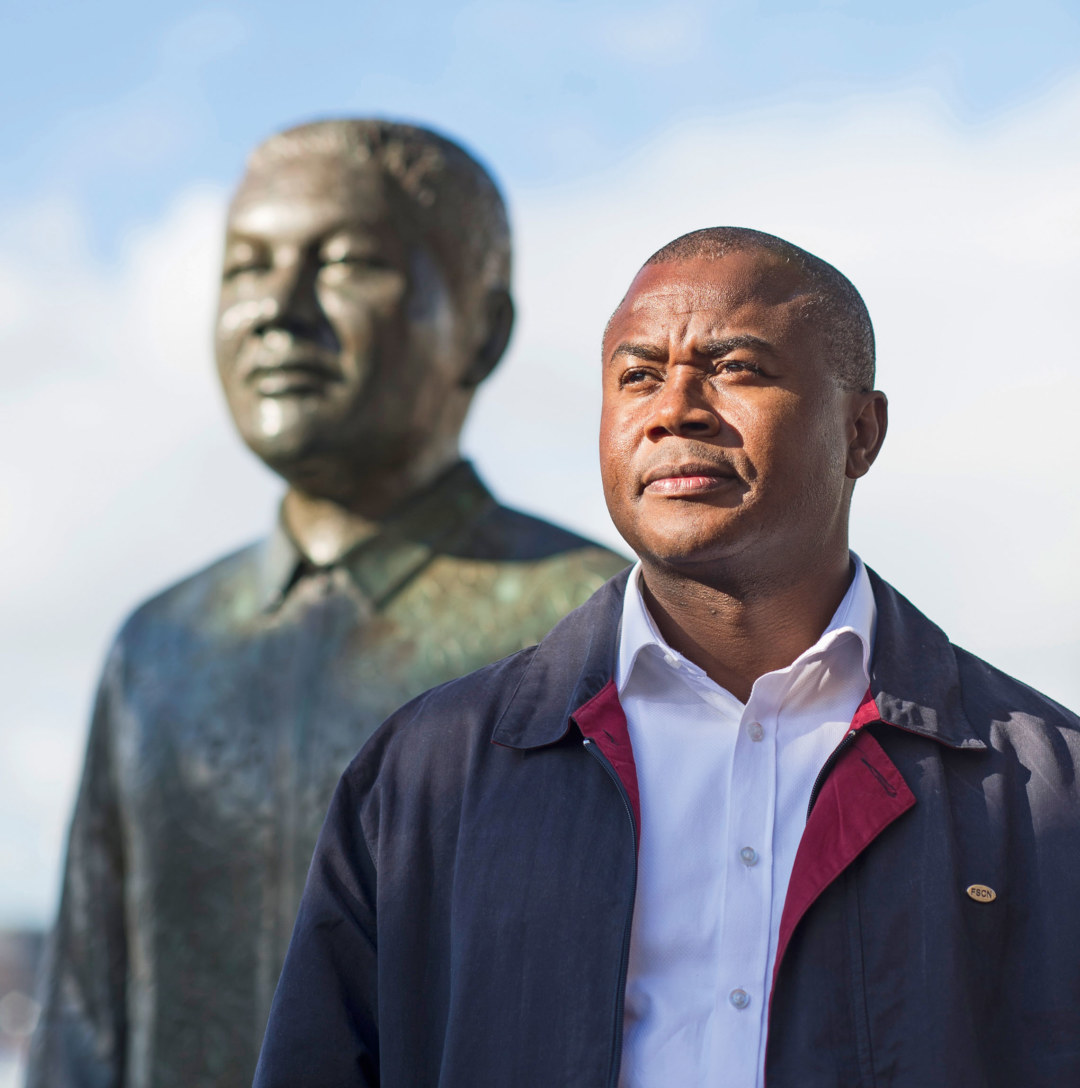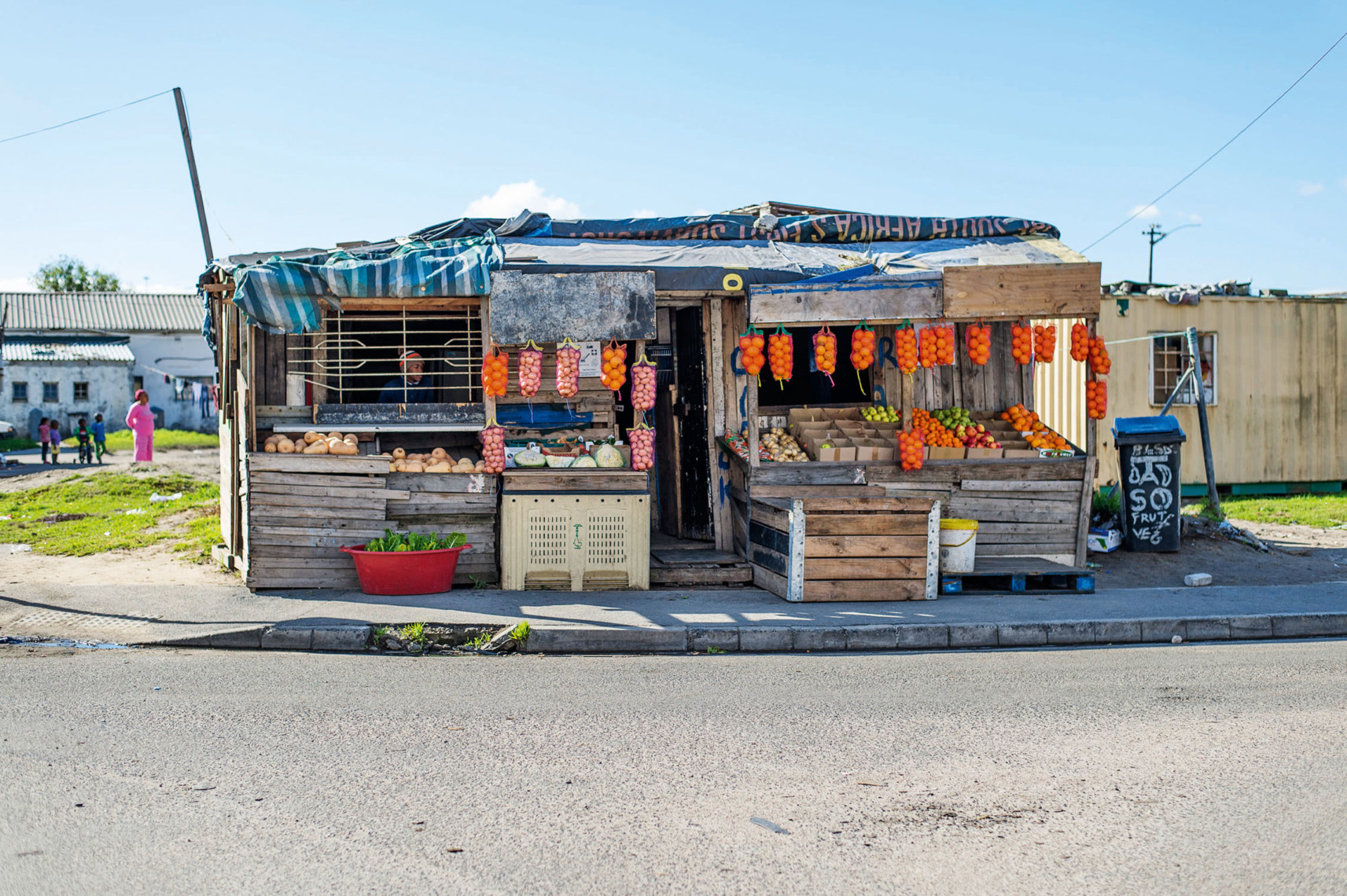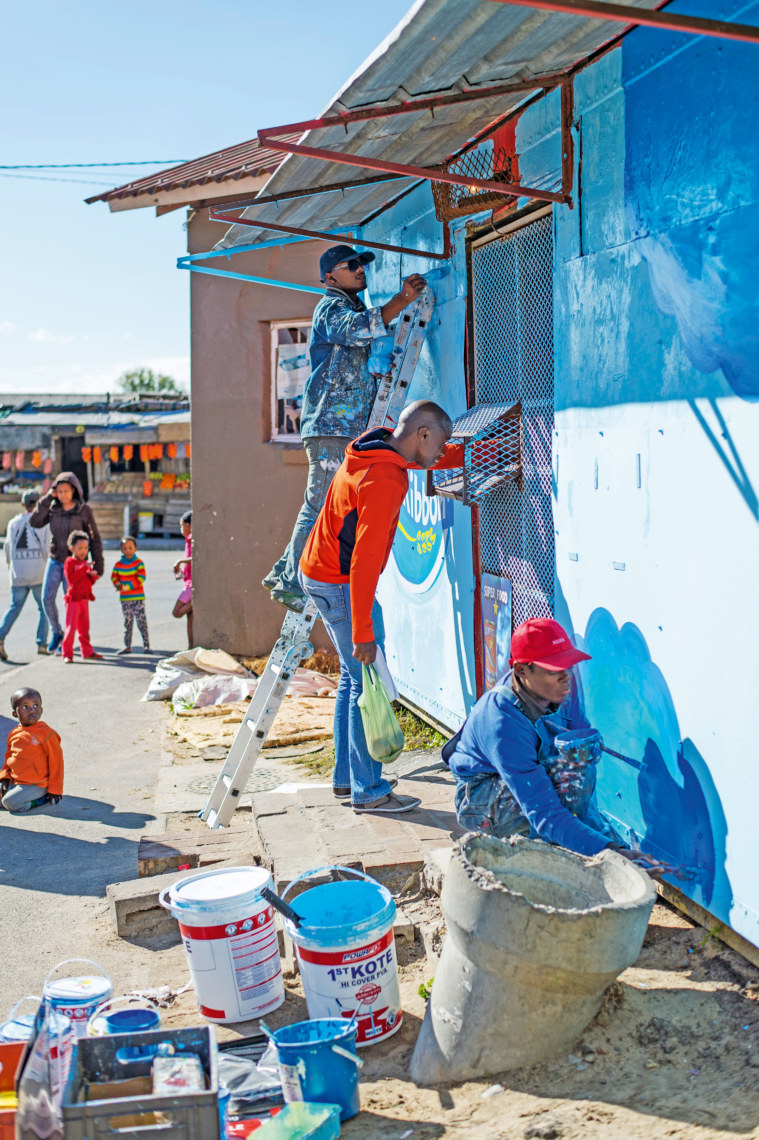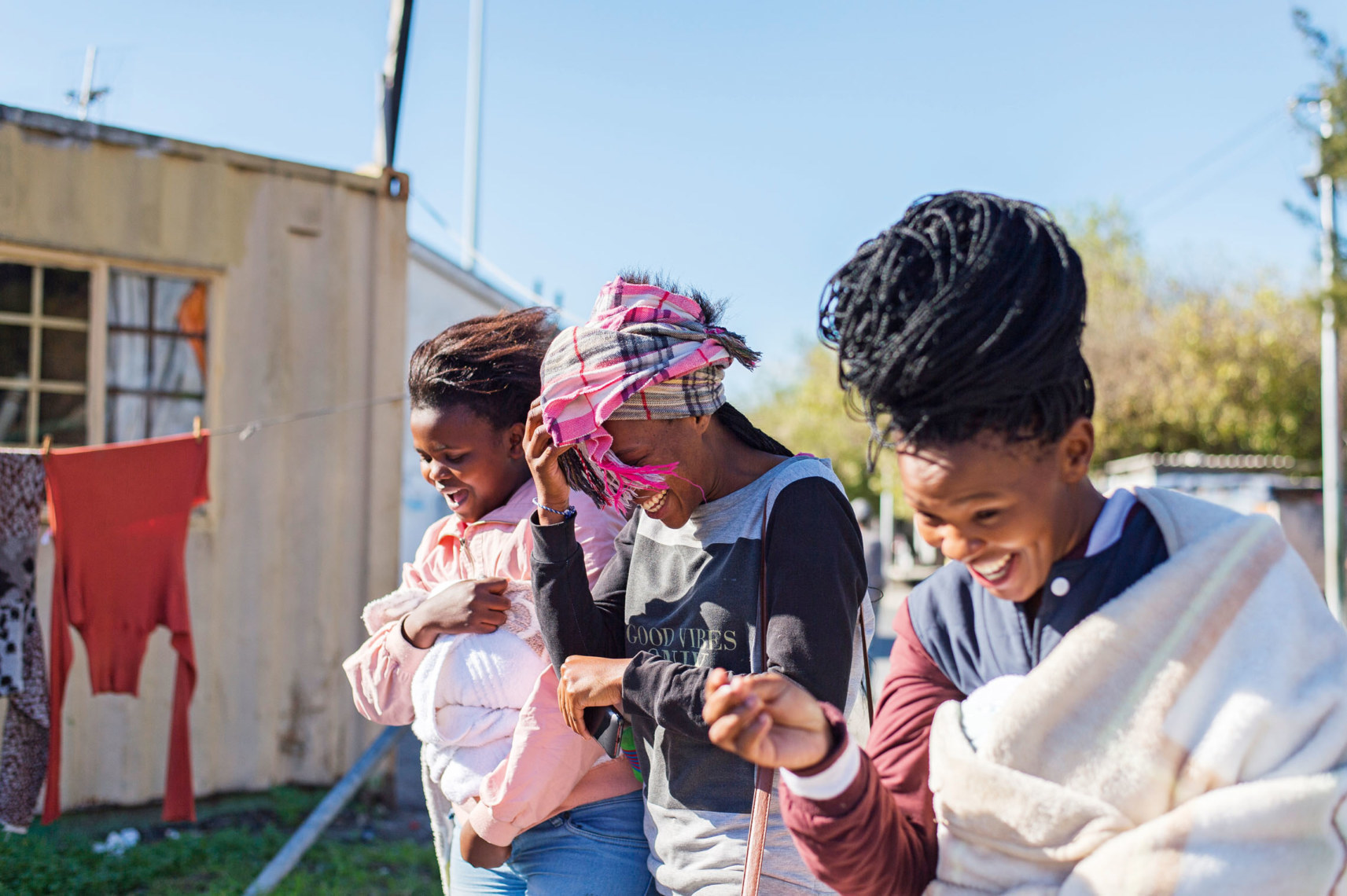
Dancers of the Indoni Dance Art & Leadership Academy
The now 45-year-old turns around. For a moment he observes the dancers of the Indoni Dance Art & Leadership Academy.
They are practicing on the granite floor in front of the statue for a performance later that evening. The performance deals with racial discrimination, and the power of resistance. Re-interpreted. Modern. The eleven dance and sing. Bodies interweave with each other to the rhythm of the drums before the performance concludes with a blood-curdling cry. In the distance, the majestic Table Mountain towers over the city. Pienaar likes it here. He wouldn’t mind staying. But to tell the story of this man, who has been working in customer service with Wörwag in South Africa since 2003, it is necessary to visit other places in Cape Town.
A role model in the township
It’s just after 11 o’clock. Langa Township is located around nine miles (fifteen kilometers) away from the harbor with the Mandela statue. Langa means sun. But it’s only during the day that temperatures of 65° Fahrenheit (18° Celsius) make the South African winter bearable. At night, it gets cold. Those who don’t live on the street might share a corrugated-iron hut with four to six others. The dwellings have neither heat nor running water. Even the electricity through precariously strung power lines from the tall masts is only available when there’s no short-circuiting somewhere along the way.
In a little alleyway, a plastic bucket filled with soy beer ferments in the sun. Brewing takes place here. And drinking: in one hut, eight men pass around a 5-quart (5-liter) bucket of the beverage. The black township is home to 200,000 residents. They enjoy having visitors. Few strangers find the nerve to come here, yet if you look people in the eye, you lose your fear and discover openness and curiosity.
“It’s important for these people to see the other side too,” finds Pienaar.

Back to his roots: a visit to the township awakens memories. Pienaar wants to set an example and show people the way to a better life.
One of them
“They need to realize that there is a life outside of the township. A better life. When they realize that, they start to think: How can I get out of here?” The government supports those efforts with social housing projects.
Pienaar managed the feat on his own steam. Yet he has remained one of them—even if he no longer quite looks the part. Today he is wearing a suit and tie, and has a smartphone in his pocket. Pienaar grew up in a township near Port Elizabeth. When his parents could no longer provide for him, he was raised by adoptive parents alongside seven step-siblings. “I didn’t mind living in the township back then,” recalls Pienaar. Finishing primary school was a turning point for the then twelve-year-old. “I realized: If I want to change my life, I have to fight for it.” It was an uprising against his seemingly foreordained destiny of living in the poverty of the township.
As a teenager, Pienaar was prepared to give everything to achieve his dream of a better life. Day in, day out.
That included a nine-mile (fifteen-kilometer) walk to the higher secondary school and back each day. Study, study, study. For life. After graduating, he began training as a paint lab technician. Yet only when he offered his labor without pay did he score the long-awaited job. “Professional experience is worth more than good grades,” concludes Pienaar. “Qualification happens in the workplace.” After five months, he had persuaded his bosses. He finally got a permanent position. From there, he began working his way up the ladder: test lab technician, process engineer, and finally, technical account manager with Wörwag since 2003.
His skills are meanwhile a known quantity. When Wörwag founded a subsidiary in Cape Town in 2003, Michael Krüger recruited him to join the operation. The key account manager knew Pienaar from their days together in the offices of automotive supplier Venture in East London. Pienaar: “I’m very grateful to Wörwag. Working there has significantly improved my life.” Pienaar is married, has two daughters (13 and 18 years old) and owns his own house. “My kids have it easier than I did. I can pay for their education.” The eldest is studying biochemistry.

Henry Wienaar (left) meeting his clients
As an application technician, Pienaar handles the Rehau company in Port Elizabeth, just under three hours by car from East London.
Among other things, the company paints bumpers for Mercedes at the location. “He does his job very well,” said Wörwag Managing Director Dr. Peter Moritz to customers, with Pienaar looking on. Concise, but clear words. The recognition means a lot to Pienaar. Praise for a black man in South Africa remains the exception.
Focus on family and church
Pienaar is a bundle of energy at work, and it’s no different is his free time. The practicing Christian is an active member of his Old Apostolic congregation. As an elder, he tends to numerous families in his district in East London with a total of some 250 members. So he’s busy almost every evening, with services on Sundays. Only work and sickness are excused.
It’s no surprise, then, that his visit to Cape Town also takes him to a house of worship, around 0.3 miles (0.5 kilometers) from Langa Township. The spare, unadorned architecture with the gray roofs is seen throughout the country. The interior is reminiscent of an assembly hall. The only thing to look at, a large Bible on display, keeps minds focused on what’s essential. “We do without symbols and decorations on the walls,” says Pienaar. “Only Scripture counts.” And family.

In the service of the church: Pienaar ministers to families in the community.
The four of them spend a lot of time together. Not only at church, but also with sports.
On Saturdays, they take part in the “park-run”. His wife Cherydene joins him regularly on this run. In this he is also an Event Director at the local Kidd’s Beach parkrun. Every week, up to 40,000 runners complete the 3.1-mile (5-kilometer) course through East London. Pienaar has done the run over 200 times. “I want to be the first one to do 250 runs. Apparently you get a golden jersey for that,” he says with a grin. He reaches the finish line in just over 23 minutes. His best time over this distance is 20:16.
Last year he entered the Legends Marathon. In 5 hours and 25 minutes, he ran an astonishing 42 miles (68 kilometers). When training, he usually does a lap around his old neighborhood. It’s no big thing for Pienaar; he’s loyal to his roots. The memory is alive. And he wants to inspire others. Tirelessly. The way Mandela showed people how to live. “For to be free is not merely to cast off one’s chains, but to live in a way that respects and enhances the freedom of others.”
Text: Michael Thiem
Photos: Laurent Burst



